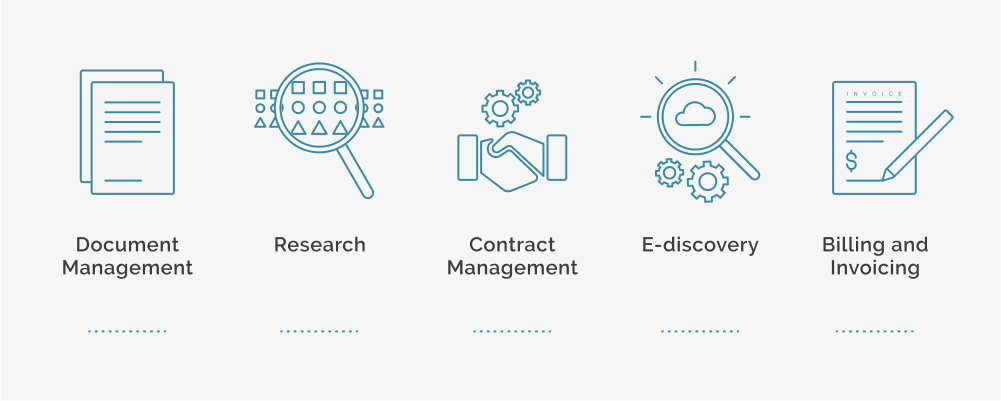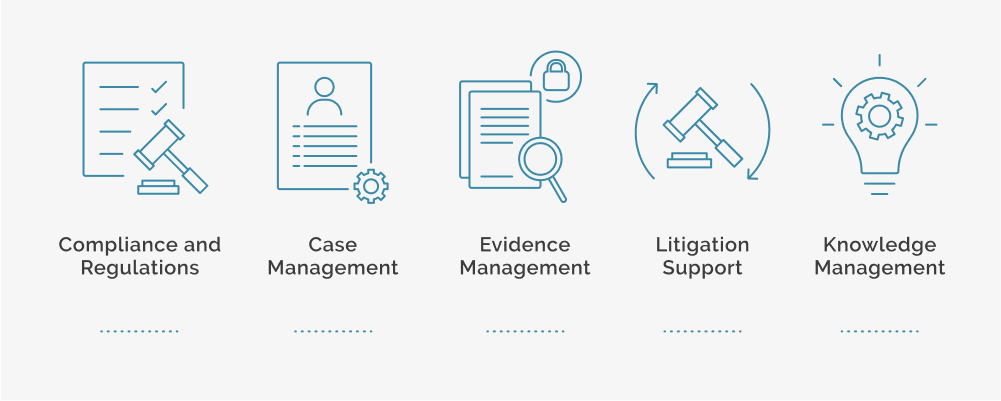RPA, zBlog
RPA in Legal Industry: Top 10 Use Cases of Law Firm Automation
trantorindia | Updated: January 24, 2023

Robotic Process Automation (RPA) is a technology that allows companies to automate repetitive and time-consuming tasks, such as data entry, by using software robots. These robots can be programmed to mimic human actions and work alongside human employees, freeing up time and resources for more critical tasks. In the legal and law industry, RPA can automate various tasks, from document management and research to billing and invoicing. This blog post will look at the top 10 use cases of RPA in legal and law companies, with real-life examples of each use case.
- 1. Document Management: RPA can automate tasks such as scanning, indexing, and filing legal documents. This can save time and reduce errors for legal and law companies. For example, a law firm used RPA to automate its document management process, resulting in a 50% reduction in errors and a 40% increase in productivity.
- 2. Research: RPA can automate tasks such as legal research, including case law and statutes. This can save time and reduce errors for legal and law companies. For example, a legal research firm used RPA to automate its research process, resulting in a 30% reduction in research time and a 20% increase in accuracy.
- 3. Contract Management: RPA can automate drafting, reviewing, and tracking contracts. This can save time and reduce errors for legal and law companies. For example, a law firm used RPA to automate its contract management process, resulting in a 25% reduction in contract errors and a 20% increase in contract processing speed.
- 4. E-discovery: RPA can automate tasks such as collecting, processing, and reviewing electronic data for legal purposes. This can save time and reduce errors for legal and law companies. For example, a law firm used RPA to automate its e-discovery process, resulting in a 30% reduction in e-discovery time and a 20% increase in accuracy.
- 5. Billing and Invoicing: RPA can automate generating, tracking, and processing invoices and payments. This can save time and reduce errors for legal and law companies. For example, a law firm used RPA to automate its billing and invoicing process, resulting in a 25% reduction in billing errors and a 20% increase in payment processing speed.

- 6. Compliance and Regulations: RPA can automate tracking and compliance with regulations, including legal and ethical standards. This can reduce errors and improve compliance for legal and law companies. For example, a law firm used RPA to automate its compliance and regulatory reporting, which resulted in a 40% reduction in errors and a 20% reduction in compliance-related costs.
- 7. Case Management: RPA can automate tasks such as tracking and managing case information, including client data and court documents. This can improve efficiency and reduce errors for legal and law companies. For example, a law firm used RPA to automate its case management process, which resulted in a 25% increase in the case resolution speed and a 20% reduction in errors.
- 8. Evidence Management: RPA can automate tasks such as collecting, processing, and reviewing evidence for legal purposes. This can save time and reduce errors for legal and law companies. For example, a law firm used RPA to automate its evidence management process, which resulted in a 30% reduction in evidence review time and a 20% increase in accuracy.
- 9. Litigation Support: RPA can automate document preparation, research, and analysis for legal proceedings. This can save time and reduce errors for legal and law companies. For example, a law firm used RPA to automate its litigation support process, which resulted in a 40% reduction in document preparation time and a 30% increase in research speed.
- 10. Knowledge Management: RPA can automate tasks such as organizing, indexing, and searching through legal documents, providing relevant information to legal teams, and improving the overall efficiency of legal departments. For example, a law firm used RPA to automate its knowledge management process, which resulted in a 35% reduction in response time and a 20% increase in knowledge sharing among legal teams.
In summary, RPA can be used in legal and law companies to automate various tasks, from document management and research to billing and invoicing. By automating these tasks, RPA can save time, reduce errors, and improve efficiency for legal and law companies, leading to cost savings and higher customer satisfaction. The legal industry is becoming increasingly competitive. Adopting RPA can give companies a competitive edge by reducing costs, increasing efficiency, and automating repetitive tasks, allowing legal professionals to focus on more critical and higher-value tasks.
Trantor has a proven track record of helping Fortune 500 companies harness the power of automation to drive significant cost savings, improve compliance, and boost productivity. Our expertise in intelligent automation allows us to deliver exceptional business outcomes efficiently.
Our approach to process optimization is grounded in lean methodology, ensuring that we only implement solutions that bring the most value to your organization. Utilizing the most advanced business process automation framework, we take a holistic view of your automation journey and provide tailored, tool-agnostic, and vendor-agnostic solutions that align with your unique business needs. Trantor can help you stay ahead of the curve and achieve your strategic goals through the power of intelligent automation.




